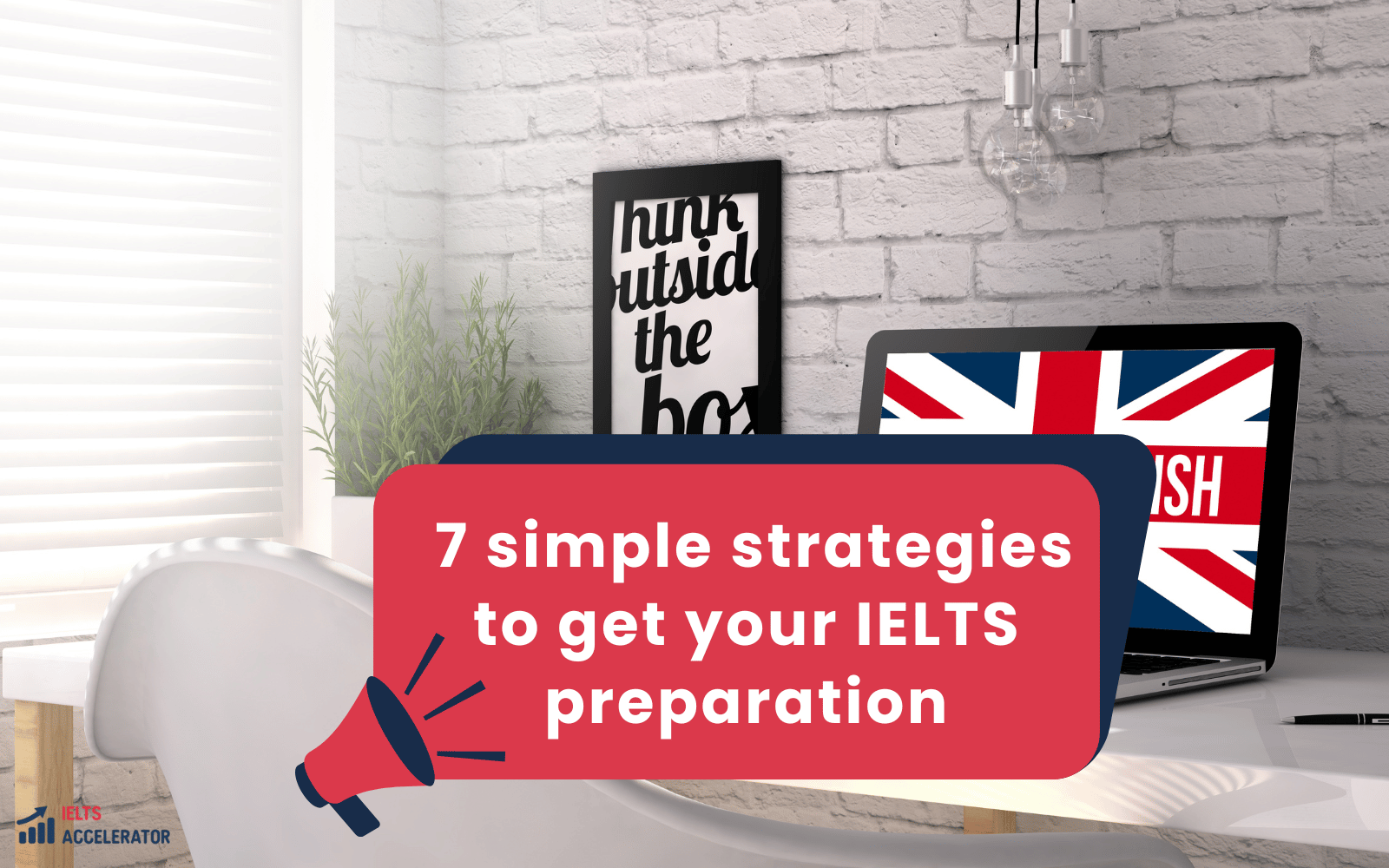When it comes to IELTS exam preparation, there are a lot of factors you’re going to have to consider before you go out there and just start studying. This article is meant to guide you with 7 simple strategies to get your IELTS preparation off to a good start.
Figure out why you’re taking the IELTS
The first step begins with understanding your purposes of the test. Whether you plan to work, study or migrate to an English-speaking country. Then the required test score will be determined for you. Along with that comes understanding if you need General or Academic IELTS.
If you’re a university student hoping to pursue a Master’s degree in the United Kingdom, for example, you’ll need to study for the Academic IELTS test and check with the relevant university to see what scores they require. If you wish to study in higher education, get vocational training, or migrate to Australia, New Zealand, Canada, or the United Kingdom, you should take IELTS General Training.
Understand and read about the format of the IELTS Exam
After you’ve decided which IELTS test to take, familiarise yourself with the format by reviewing the test content, as well as the question and task types for each section. It’s also a good idea to go over the IELTS rules and regulations.
The IELTS test has four sections: listening, reading, writing, and speaking. Each section of listening and reading is divided into two parts. You will listen to a conversation or a lecture and then answer questions in the listening section. You will read a passage and then answer questions in the reading section.
Both the writing and speaking sections are divided into two sections. You will write an essay in the writing section. You will hold a conversation with a native speaker in the speaking section.
The listening section will take 20 minutes, the reading section will take 60 minutes, the writing section will take 60 minutes, and the speaking section will take 11-14 minutes.
Take a practice test
Once you understand the test format and question types, prepare for test day by doing IELTS practice tests.
Begin your preparation by taking a practise test to identify your weaknesses. This is an important part of your initial preparation because it will help you determine your strengths and weaknesses. Not only must you work on your weaknesses, but you must also work on your strengths in order to lay a solid foundation for the exam.
However, if you are unable to avoid these errors or identify them clearly, you will undoubtedly require the assistance of an expert. Most test-takers consider taking an IELTS preparation course, which is one of the simplest ways to prepare for the exam because it focuses solely on getting you exam-ready for IELTS.
Make a plan for your IELTS preparation
You can plan your IELTS preparation once you know your level. Do you need to enhance your overall language skills before you can begin seriously studying for the IELTS? If you want to get a higher band score, but your level is below 6, this is very typical. Maybe you’ll need a tutor or a lot of self-guided study, but if your English level is way below a 7, just studying for the IELTS won’t help you attain that score; you’ll need to study general English as well!
Learn about and practice various types of questions
The four elements of the IELTS Academic and General Training tests are Listening, Reading, Writing, and Speaking. Each section of the test has its own set of question types.
Get to know the types of questions you’ll see in each section of the test, as well as the amount of time you’ll have to complete the Listening, Reading, Writing, and Speaking sections. Also, download the free practise tests to get a feel for the various question styles.
Improve your overall level
When trying to improve your overall level, Practising English every day can make a big difference, so set aside 5 minutes a day for tasks that can help you improve – such as:
- read things that interest you in English from online news sites like BBC, The Guardian, The Times or New York Times. Don’t just read for comprehension but also for grammar and vocabulary tidbits that will help your writing and speaking.
- Listen to English-speaking audio books, podcasts, radio and music, and native speakers talking to one another and if possible join in. Try the ‘shadowing’ technique. This involves repeating what someone has just said in English. This will help with pronunciation, intonation and stress.
- Speak to colleagues, friends and family in English, and try to write some English and earn a new word every day or week and practice using it in a sentence.
You can learn more about IELTS exam preparation and tips and tricks Here.
There are a variety of question types are used, as shown below:
It doesn’t have to be difficult or time-consuming to prepare for the IELTS exam. You may make sure you’re as prepared as possible and boost your chances of success by following these simple steps we have mentioned.
With IELTS accelerator, we make sure you are dealing with certified IELTS tutors and ex-examiners. They will make sure you don’t fall for IELTS myths and that you have high-quality materials.
So hurry up and join us now.





